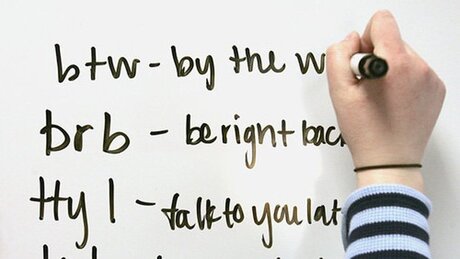all of the selves we Have ever been
 I finally bowed to the g force and got a new phone, but no matter how beautiful or capable the phone it does not change what’s on the menu. I had my fresh and fancy 5g phone on board the day I passed a man who had pulled his car into the center lane of a busy four lane highway. He was on the ground next to his vehicle and appeared to be looking underneath, perhaps to identify a problem or to fix one. “Good, Lord,” I said and began praying out loud as it seemed probable that the man would be killed or cause a terrible accident in this very busy high-speed, high-access zone. I pulled over at the first opportunity and dialed the non-emergency number of the nearest police station to see if assistance or safety could be offered to the man with the disabled vehicle. To my surprise and consternation, I discovered that the rascals who invented the phone menu had infiltrated the police department. A lengthy menu of dialing options was offered. After about ten minutes, I gave up on getting help, but curious, I pressed 4 to complete my peace officer training while I waited. When I realized the amount of time that had passed, I figured the man on the road had likely gotten on his way or was dead at the scene. Either way, my Good Samaritan efforts were pointless, and I had had enough time to reconsider a second career in law enforcement. I hung up just before the exam. I now feel the need to swallow some nitroglycerin every time I hear the words: “Please listen carefully to the following as our menu options have recently changed.” Those words offend my moral senses. It should be against the law to lie to the public so flagrantly and so frequently. Do they take the dialing public for fools? I want to call them out on this and scream into the phone, “Liars!” I know the menu has not changed. They are just trying to prevent people from immediately dialing 0 or saying “speak to a representative” or getting any satisfaction whatsoever. By now, we all know there is no representative, no one is listening, no one cares, and the strategy is to discourage people and keep them from calling. The phone number itself is a ruse. Here’s what the truth might sound like:
What’s on the phone menu? Frustration and despair seasoned by outrage. I don’t care much for the entrées, but please may I see the whine list?
0 Comments
 “…many of us have internalized the message that our bodies are some kind of burden that must be subdued and transcended.” From Goddesses Never Age Once upon a time there were no exercise classes, no gym memberships. There were no leggings or sports bras, no water bottles or heart rate monitors, no power bars or protein shakes. Daily life was the treadmill. People stepped on when they awoke and off when they fell into bed at night. They moved to the rhythms of life and the changes of the seasons. Out on the farms, in the suburbs, or on the manufacturing floors it was called “work” or “chores.” Out in the yards, in the neighborhoods, or on the school grounds, it was called “play.” Somehow people managed to get motivated and get moving without a throbbing musical beat in their ears. But the war-weary people were vulnerable, and they fell under the spell of the Gods of Progress. The Pharmaceutical Giants gave the people vaccines and antibiotics adding years to their lives and giving the people a false sense of health. The Wizard of Madison Avenue began to speak to the people from a new device called television infiltrating their minds and hearts with yearnings. Everyone began talking about an abundance of cheap, magical, labor-saving devices and convenience foods. The Wizard told the people what they should want, what they deserved, and after a taste, the people agreed. They began to seek entertainment in their homes from their laid-back positions in reclining chairs called La-Z-Boys. And after they finished their TV dinners the people puffed on burning rolls of tobacco that the Tobacco Giants said were healthy and tasted good like cigarettes should. Tik Tok, time passed. Soon the people became spectators to life. And as they watched other people do stuff, the people grew in size along with their sectional sofas and flat screen TVs. They no longer needed to walk upright. Their hand held phones became smarter than the people themselves. With a gentle tap of a single finger, the people worked. They paid their bills, ordered food to be delivered, did their Christmas shopping, wrote to friends, and asked an invisible woman named Alexa to answer the door while a robot vacuumed the floor. And still, the Gods of Progress wanted more, and so they teamed up with the Wizard of Madison Avenue who had already corrupted the Gods of the Metaverse. Together, they hatched a plan to sell more ads while stealing the minds of the people and replacing them with artificial intelligence. “We’ll create a device more addictive than tobacco. It will be so addictive and so distracting that it will rob people of their free will, the ability to think for themselves, the desire to work, or the capacity to love one another. They won’t need to do a thing ever again.” But the Gods were so full of themselves that they forgot that intelligent life still existed where it first began--outside the Metaverse. They overlooked people like Dr. James Levine who were warning that, “Sitting is the new smoking.” People began to repeat this new mantra which angered some of the Gods. They still weren’t happy with the former Surgeon General who exposed their claims about tobacco and nicotine. But ever opportunistic, the diabolical Wizard of Madison Avenue saw a way to turn natural bodily movement into a new product, and he called it “exercise,” and a multi-billion dollar industry was created to press people into buying something the Wizard had already taught them to hate. “Ah, the power of ambivalence,” said The Wizard. “And if we teach people to hate themselves, we shall have it both ways!” As expected people flocked to the gyms and purchased the memberships, the trainers’ time, sports wardrobes, and special shoes. Cinderella looked down on the scene from her throne in the happily ever after. Not a doctor, a god, a wizard, or even Jane Fonda, Cinderella always knew that it was the hard work of life that kept her mentally and physically fit to pursue her dreams, to dare to attend a ball, to climb in and out of a pumpkin carriage, to race up and down the stairs, and to dance all night. She still resents that her fairy godmother was given so much credit for a dress and a pair of ill-fitting shoes.  The votes are in, and there is no doubt in my mind that we have a legitimate winner. The best word won! And in my book, it is the best invention since deodorant. It is just too good to keep to myself. Earlier this week, in a “eureka!” moment I clicked on the link supplied by a friend who is also a lover of words, a thinker, and a seeker. Being from the school of If You Can Name It, You Can Tame It, I am thrilled to have a name for the disease that has overtaken society and an answer to my incessant question, “What the hell just happened?” I feel like a scientist who has spent a lifetime looking down into a microscope or up into the sky and who suddenly arrives at a cosmic breakthrough. What I don’t understand is how this has stayed so quiet. Why hasn’t the inventor rocketed to fame? Applause please for Cory Doctorow and the American Dialect Society word of the year: enshittification. I am no John Maynard Keynes or Milton Friedman, but my take on economics is that unchecked capitalism moves toward greed and corruption. There are no “free markets” where supply is created by demand. The suppliers psychologically and physically manipulate us into “demanding” their products and services. This is why we need government—to keep us all socially responsible, but enough about online platforms and the state of the economy and American politics. I am bringing this new word of the year into common use to include anything that once was good but has been degraded by negative social forces. Like a kid who just learned the power of dirty words, I find opportunities everywhere to use my new vocabulary. Scrabble anyone? My children will be pleased to know that I am finally replacing the F word in my daily speech, something else that has gone to ruin as I age in this time of general degradation. If you knew me in the past, you might think I am a prisoner of war making coerced statements, but no, it’s really me, another case of the rot done by technology. Enshittification. Say it once more with feeling! We know what we’ve got. Or what’s got us. Get out some hand sanitizer. Put on some gloves. Let’s clean up this mess!  Short of breath from the summer’s lung-searing heat, I collapsed in my car after a short walk across the parking lot. I heard the flesh on my palms sizzle as I grabbed the steering wheel. Cranking up the air conditioning, I got on my way just as the radio announced it was time for the news. The local stories included an update on record-setting gun violence with multiple homicides, police shootings, politicians defying orders of the State Supreme Court, the Governor’s decision to arm teachers in public schools, teenage car thieves as young as 12, and two men cheating in order to win a fishing contest! “Siri, am I in Hell?” “It’s all a mystery to me.” “Thanks a lot, Siri.” I was on my own. I changed radio stations, and then I changed lanes. Just off the busy interstate highway tucked between a rundown gym and a new gas station, I spotted heaven, a single-story building where the air is free. For the uninformed, heaven has many doors. You are in luck no matter which door you choose. You will come out feeling better and more grateful than when you went in assured that your car and your mind will make it a few thousand miles more. When I was learning to drive, neighborhood gas stations still existed. These were places with tiny, dingy, cluttered offices piled high with grease-stained stacks of papers. Adjacent to the office was a single bay for repairing cars. An attendant came out to pump your gas, clean your windshield, and check the oil. Teenage boys helped out in the summers, but it was mostly the owner doing everything. Jack ran the Boron station in my neck of the woods. It was across the street from the grocery store. Jack was the neighborhood car daddy to anxious teens learning to drive. He solved some problems for a few of the overly-confident new drivers as well, and sometimes their parents were none the wiser. I did get a driver’s license as a teen, but after years of driving, things changed--drivers were on their own to pump gas, diagnose their cars’ troubles, and find help in an emergency. This caused a rise in vehicular neurosis, that constant nagging fear that something will go wrong with your car at the most inopportune time and place. By the time I was a professional making home visits for a living, my own vehicular neurosis was at its peak. That’s when I discovered this heaven. Thankfully, said discovery was made just before the tire pressure light became standard. This new heaven is a place where people fix cars and offer life support to keep them running. That alone makes these people gods in my book. In this heaven, there is actual customer service where you can speak to a live person, get answers, understand your bill, and make an appointment that is convenient. The main act here is honesty combined with courtesy toward their many new and lifetime customers. It was in this heaven that I received an extra measure of grace: the manager and assistant manager, Steve and Jim, became car daddies to my teenage daughter as she learned to drive. How blessed can a single mom be? A far cry from the old neighborhood garage of my youth, this heaven has multiple bays. When one of the doors opens, my eyes are blinded by the well-lit, pristine shop that could substitute for a surgical suite at the Mayo Clinic. The people inside wear clean uniforms and manipulate the many high-tech instruments that now diagnose the functioning of our automobiles. Enter through the front of the building, and you will find a spacious, well-lit waiting area where travel experts are on standby to help you plan your next vacation. Interested? Don’t ask Siri. Artificial intelligence is missing wonder, heart, and conscience, all necessary for an understanding of heaven and hell. But do Google AAA Car Care Plus Grandview. You can get there on your own, or they can send an angel to tow you in. In the meantime, remember to change your oil. For that heavenly peace of mind, you must grease on earth.  I am convinced that AI is the next life form. Technology is getting out of control as we willingly turn over our human superpowers to machines. The faculties that placed human beings at the top of the food chain are slowly disappearing, abilities such as reasoning, calculating, problem solving, planning, and decision making. As our primal brains take control over our rational minds, language is disappearing as well. With all of the acronyms and abbreviations, we soon will be grunting like Neanderthals. Apparently, telephones are no longer for conversation. I am meeting more parents who tell me that their school-age children do not like to talk on the phone because talking makes children anxious. They prefer all communication to be via text messaging. With rapid, acronym-filled text messages, we are at the end of substantive communication. Deep meaning is to be found in expressions such as WTF, CWOT, EM?, IDK, IDC, and SEP. I grew up in a world of “use your words,” and I’m still trying to get straight with POTUS, FLOTUS, and SCOTUS. But it’s a DIY world, and I will have to learn this new language on my own. What frightens me is the room for error and misunderstanding. For example, if you text your boss LOL will that be assumed to be laughing out loud or lots of love? B3 can be a vitamin, an electric guitar, or a rock band. B3 can also stand for blah, blah, blah. Was my nurse practitioner ordering me a vitamin, inviting me to a rock concert, or giving me the brush off? Acronym-illiterate as I am, I am grateful my own children are grown because there is an entire shorthand vocabulary devoted to KPC (or keeping parents clueless). It includes P911, PAL, PAW, PIR, and POS. If you have children and have no idea what all of this means, then your children will be ROTFL at what they’ve just pulled off. And as someone who is old-fashioned and still strives to be on time, I am forced to wrestle with both my covered wagon and the many acronyms for time including: 2moro, 2nte, AEAP, ALAP, ASAP, B4YKI, BRB, BRT, CUS, CYT, EOD, L8R, N-A-Y-L, OMW, RN, and EOBD. I never thought I’d say this, but thank God for stay-at-home orders. I am glad there is no place to go because I have no idea what time I should be there. There is another vocabulary for our closer relationships, if texting can be considered intimate communication. There is BFF, a title for someone closer than an FOAF, and there are greetings and closings such as HAK, ILU or ILY, IMU, and KFY. Somehow I just can’t feel the love in ILU. But maybe a cute, dancing emoji will fill the bill. Nothing says I love you like a grunt and a cave drawing. RU following me on all of this? JC. NTIM. The more I struggle with this new vocabulary, the more anxious I become. I guess those talk-averse children have a point. It is a scary world when you don’t understand the language. SITD but CUL8R.  My phone rang three times this morning before I could get to it. It was a surprise. I am accustomed to receiving text messages throughout the day, but the phone does not ring often any more. As I ran for the phone, I was reminded of my youth. When the phone rang, it generated excitement. Everyone in the household dashed toward the landline wanting to be the one to answer. If the caller was a relative or someone known to everyone in the family, the receiver was passed around until each person had a turn to talk. On the phone or in person, parents trying to civilize a child would never tolerate offspring who did not courteously respond when spoken to. And much of the time, children were expected to hold onto their thoughts and just listen. Now people show up at state capitols with assault weapons. They gather in the streets. Burn down buildings. Take over police headquarters. Bury people with tweets. Is this what it now takes to be heard? How do I ignore thee? Let me count the ways. First, there are in-person encounters. I would say face-to-face except people don’t look at one another any longer. They are busy staring into their phones and scrolling with their fingers, giving an occasional “uh-huh,” as you speak. Folks gather in the lunch room, at a meeting, or around a dinner table with others and occupy themselves with their phones. They might even laugh and talk out loud to no one in particular as they read quips from their screens. Then there is the old-fashioned letter. What a surprise to get paper mail! But how likely is a person to receive a letter anymore? And what is the likelihood someone would answer if you took the time to write? A person has better odds of discovering cave drawings than getting a letter in reply. Email was great at the start. Fast. Efficient. An exciting new technology. Now? Forget about it. People are entombed in email. If you get an answer, it might take weeks. More often, there is no answer. Ever. Recently, someone I know shared frustration that an important colleague had 200 unopened emails! Ouch! And is that just the tip of the cold shoulder? Probably. I called a business associate one day to follow-up on an email. As I waited on the line for him to search his inbox, he told me that he receives approximately 300 emails a day. I would be on life support by the end of a week if I tried to thoughtfully answer that many emails. And don’t think you can sneak up on someone with feigned urgency by calling them. Folks rarely answer their phones unless they want to chew out or humiliate a telesales person. “Let it go to voicemail” is the company song. We all know that voicemail is hopeless. Too much effort. You have to dial your voicemail box, listen, maybe jot down a number or a piece of information, and dial back. A person would need a boost from a bottle of Ensure to support all that effort. And who keeps Ensure on hand? Your best hope might be a text message, but don’t look for deep or thoughtful communication. Short messages might appear curt. Acronyms can lead to confusion. Suddenly, someone stops speaking to you because a typo lead to a new acronym that unintentionally insulted the receiver…The alphabet was once something decipherable by preschoolers, now you need an interpreter. Does that statement deserve an OMG? A WTF? IDK. And I give up. And then there is the interplanetary universe of customer service. Phone menus. Holds. Chats with AI. Scripted responses. Little that is helpful. Much that is infuriating. What is the actual goal of customer service? Drive up the sale of psychotropic medications and mood stabilizers? There is a lot of discontent brewing among the ignored and dismissed. It is a sad day when it is easier to storm the capitol than it is to get a return phone call. |
AuthorLilli-ann Buffin Archives
July 2024
Categories
All
|

 RSS Feed
RSS Feed